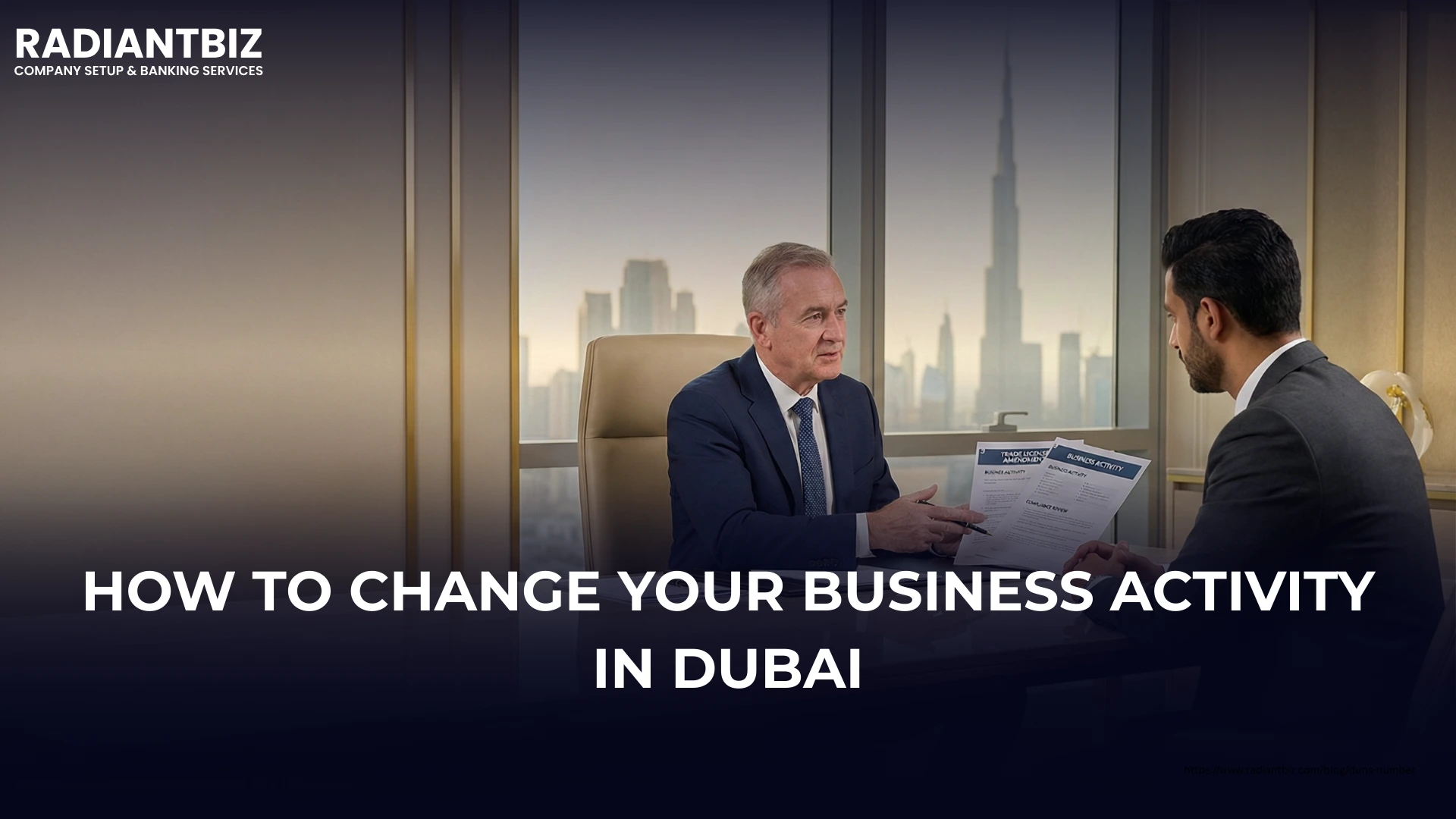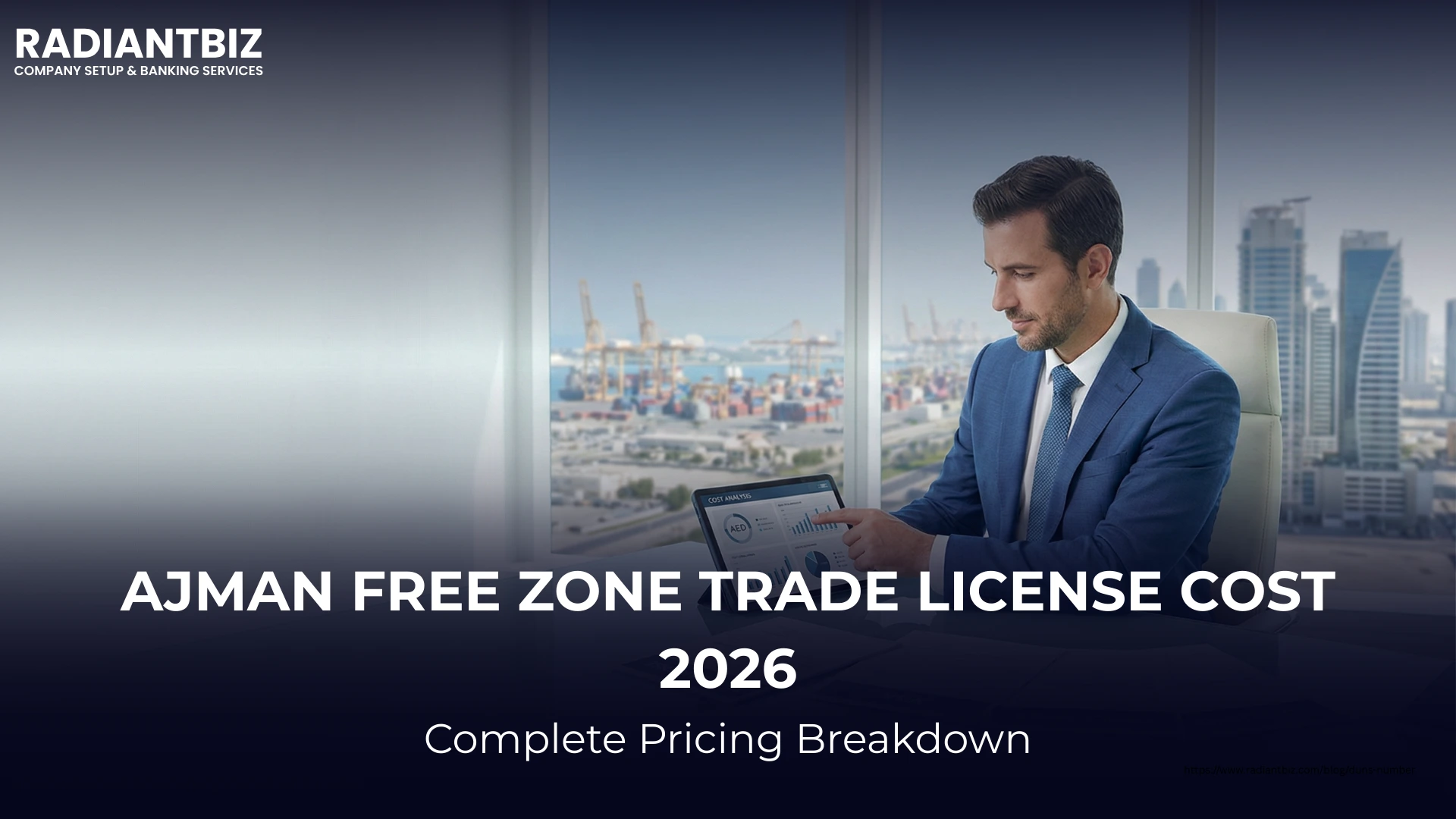Understanding the Economic Substance Regulations (ESR) for Offshore Entities in the UAE

-for-Offshore-Entities-in-the-UAE.webp)
Table of Contents
In the current global economy, regulatory transparency and fair taxation have become topical issues. Nations worldwide are being pressured to conform to global standards, especially in the fight against tax evasion and base erosion schemes.
The UAE, which had been thought of as a tax haven, made a major move in the direction of easing worldwide concerns by establishing the Economic Substance Regulations (ESR). These regulations are especially crucial for UAE offshore companies, which are now required to show they have substantial activities in the UAE.
This article provides a comprehensive overview of the ESR regime, covering what it is for offshore companies, who need to comply, and how to be fully compliant without incurring penalties.
Overview of the UAE ESR Framework
The Economic Substance Regulations were first introduced in the UAE through Cabinet of Ministers Resolution No. 31 of 2019 and were later amended in 2020 through Cabinet Resolution No. 57. This was a direct response to the OECD's Base Erosion and Profit Shifting (BEPS) project and the European Union's crusade against harmful tax practices.
The basic premise of ESR is straightforward: companies claiming tax residency in a country must have a genuine economic presence there. That is, profits made in the UAE must reflect substantial business activities conducted therein.
Who Needs to Comply with ESR?
ESR applies to all UAE legal persons, whether mainland, free zone, or offshore companies, if they are conducting certain business activities known as "Relevant Activities."
They include banking, insurance, management of investment funds, lease-finance, headquarters companies, shipping, holding company companies, intellectual property (IP) companies, and distribution and service center companies. If your company conducts any of these activities, even partially, it falls under the ambit of ESR.
Exemptions Under ESR
Not all entities are required to comply fully. The UAE allows for exemptions in certain cases. These exemptions are applicable to entities that are foreign tax-residents, purely UAE-resident entities that are not part of a multinational group, and branches of foreign companies that have their income taxed in a foreign jurisdiction.
Exempt entities are not required to comply with the full substance requirements, but they are required to file an annual ESR notification stating that they meet an exemption.
What is the Economic Substance Test?
The second requirement for the entities that are within the scope of ESR is to pass the Economic Substance Test. The test is designed to make sure that a business has an actual operational presence in the UAE. There are several key criteria that businesses must meet:
Management and Direction
First, they must be controlled and managed in the UAE. That means board meetings must be held in the country, and key strategic decisions must be documented as having been made locally.
Core Income-Generating Activities (CIGAs)
Second, the company must perform its Core Income-Generating Activities (CIGAs) in the UAE. For example, a lease-finance company must perform contract negotiation and risk assessment activities from the UAE.
Physical Presence and Resources
Aside from local management and operations, businesses must demonstrate that they possess adequate employees, expenditure, and physical presence in the UAE. Irrespective of whether the business uses its own full-time staff or a third-party service provider, the resources must be sufficient to serve the size and complexity of the business activity.
The final aspect of the Economic Substance Test is the existence of a physical presence, premises, shared office, or other tangible base of operations within the UAE.
Special Requirements for High-Risk IP Businesses
It is noteworthy to mention that IP companies are considered high risk under ESR and are therefore subject to even greater scrutiny. Where a foreign company holds patents or other intellectual property but is not actively developing or managing the same in the UAE, it must provide substantial justification for the IP being attributed to the jurisdiction.
Filing Requirements and Deadlines
Filing requirements pursuant to the ESR regime are both mandatory and time sensitive. All persons undertaking a Relevant Activity must make an annual ESR Notification within six months of the end of its financial year.
The notification indicates whether the company has conducted a Relevant Activity and whether it has earned income from it. If it has, then the entity must also submit an ESR Report within twelve months of the financial year end.
This report will include data on the company's activity, revenue, operating costs, number of employees, and documentation to support the Economic Substance Test. Companies are also obligated to maintain all supporting documentation, including audited financial statements, lease agreements, employment agreements, invoices, and minutes of board meetings.
Penalties for Non-Compliance
Failure to comply with ESR can result in severe consequences. The penalty for failure to file the annual notification is AED 20,000. Non-filing of the ESR Report is fined AED 50,000.
More significantly, a failure to meet the Economic Substance Test will be fined AED 50,000 for the first time and AED 400,000 for subsequent failure. The authorities also have the discretion to inform foreign tax authorities about non-compliant companies and even suspend or revoke business licenses in extreme cases.
What ESR Means for Offshore Companies
For offshore firms, i.e., those incorporated under RAK ICC or JAFZA Offshore, complying with ESR is accompanied by unique challenges. Such firms typically lack a physical presence in the UAE, have few operational personnel, and are managed from abroad.
These structural limitations have a tendency to conflict with ESR obligations, and offshore firms must therefore take proactive steps.
Strategies to Remain Compliant
One such strategy is to establish a real presence in the UAE by leasing office space and hiring local staff. While it is possible for firms to outsource economic substance activities to UAE resident service providers, they will be required to ensure that such service providers are themselves compliant and can evidence the substance of their support.
Proper documentation, from office leases to payroll, is necessary in order to evidence compliance under audit.
Debunking Common ESR Myths
There are several misconceptions about ESR that can put businesses at risk:
Myth 1: “We’re not profitable, so ESR doesn’t apply.”
ESR obligations are based on the type of activity, not on whether a company is profitable.
Myth 2: “We’re just a holding company, so we’re exempt.”
While holding companies are subject to lighter requirements, they must still file annual notifications and meet minimal substance criteria.
Myth 3: “We’re in a free zone, so ESR doesn’t affect us.”
All UAE entities conducting Relevant Activities, regardless of their location, are subject to ESR rules.
Developing a Compliance Strategy
A sound compliance strategy for offshore entities begins with an accurate assessment of whether the company is conducting any Relevant Activities. Once confirmed, the business should plan its filing schedule carefully and ensure that ESR Notifications and Reports are submitted on time.
The record-keeping is to be ongoing throughout the year, and as and when needed, companies are advised to take the advice of ESR experts who can guide them through reporting obligations. Outsourcing is permitted under ESR, provided the outsourcing service provider has sufficient resources and records in the UAE to prove the activity being performed.
The Role of UAE Regulatory Authorities
Each regulatory authority, e.g., RAK ICC, DMCC, DIFC, etc., plays a part in managing ESR compliance within its jurisdiction. The UAE Ministry of Finance is the National Assessing Authority and ultimately decides on compliance assessments. Authorities may audit and request additional information, so it is wise to be thoroughly prepared.
Case Studies: Lessons from Examples
To illustrate practical application, consider the following examples:
A RAK ICC offshore company with IP and no local business will be penalized for failing to meet the substance test.
A JAFZA offshore company with distribution business in the region established a warehouse, had UAE-based staff, and conducted board meetings locally, thus meeting ESR requirements effectively.
A DIFC holding company, while it earns no revenue, filed its ESR documentation appropriately and met limited obligations.
How Business Consultancies can support Your ESR Compliance
Business consultancies work hand in hand with free zone and offshore businesses to lead them through ESR compliance. They provide ESR activity tests, annual filing, outsourced office and personnel services, and in-house team training.
From the very beginning to complex structuring, they assist in keeping your business one step ahead of regulatory risks.
ESR Compliance Is Not Optional
The UAE Economic Substance Regulations are here to stay. For offshore companies, interpreting and adhering to ESR is not only a legal necessity but a strategic necessity. The repercussions of non-compliance are too significant to ignore, fines, license suspension, and international publicity can have long-lasting consequences.
Being positively inclined towards compliance, backed by proper planning and professional advice, is the best way of protecting your business in a changing global tax environment.
If you're unsure of your ESR status or need help with your compliance strategy, reach out Radiantbiz, who can help you assess your obligations and stay compliant, so you can focus on what really matters: growing your business.
Seek our professional on-the-ground guidance, contact us via mail at info@radiantbiz.com or WhatsApp & call us at +971 55 234 7124!



2.png)




.avif)